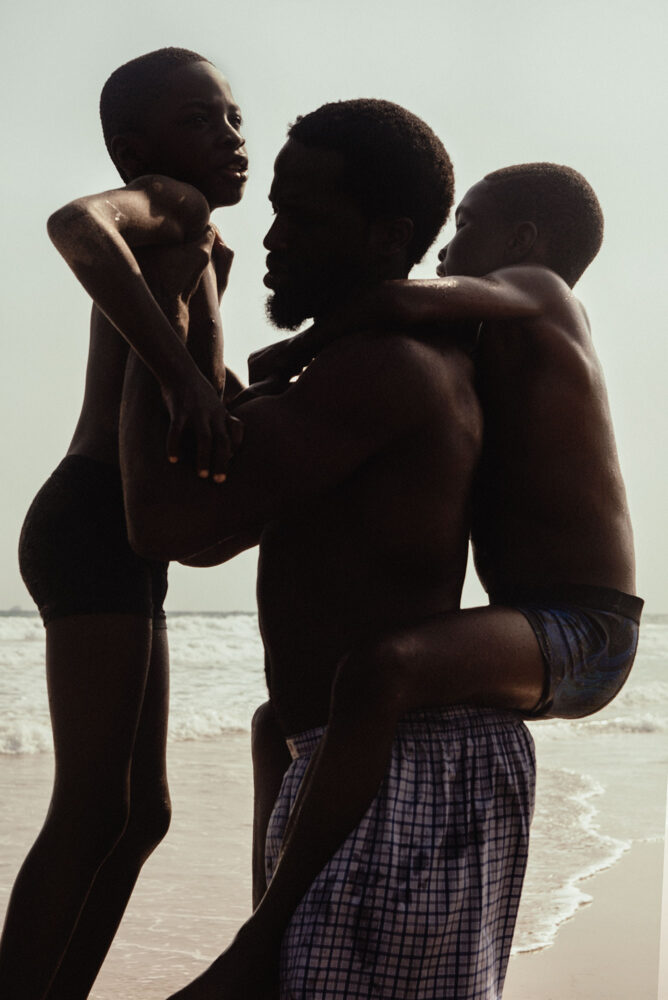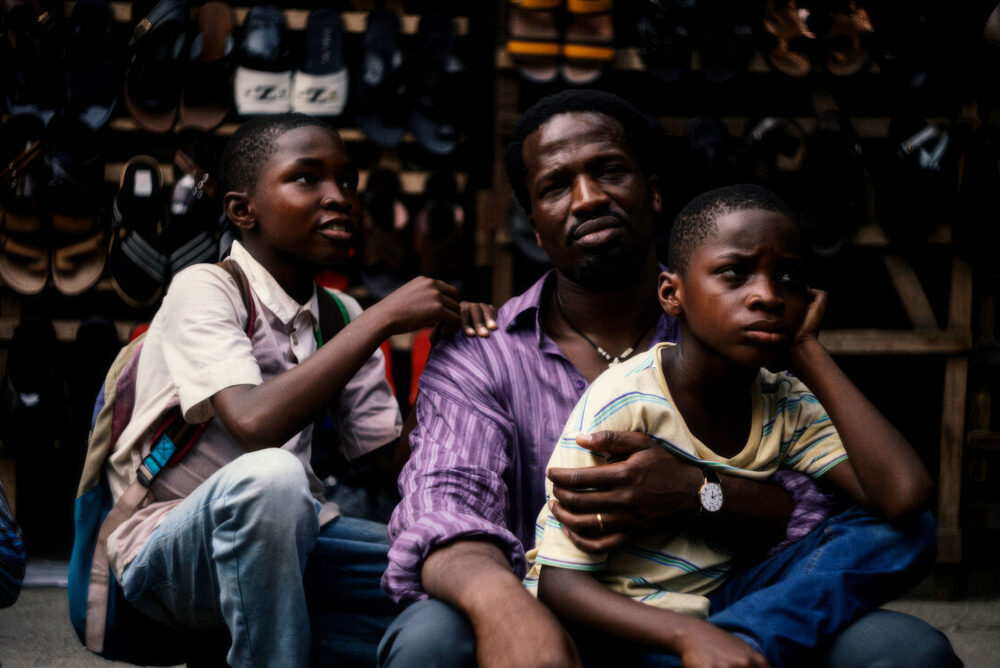
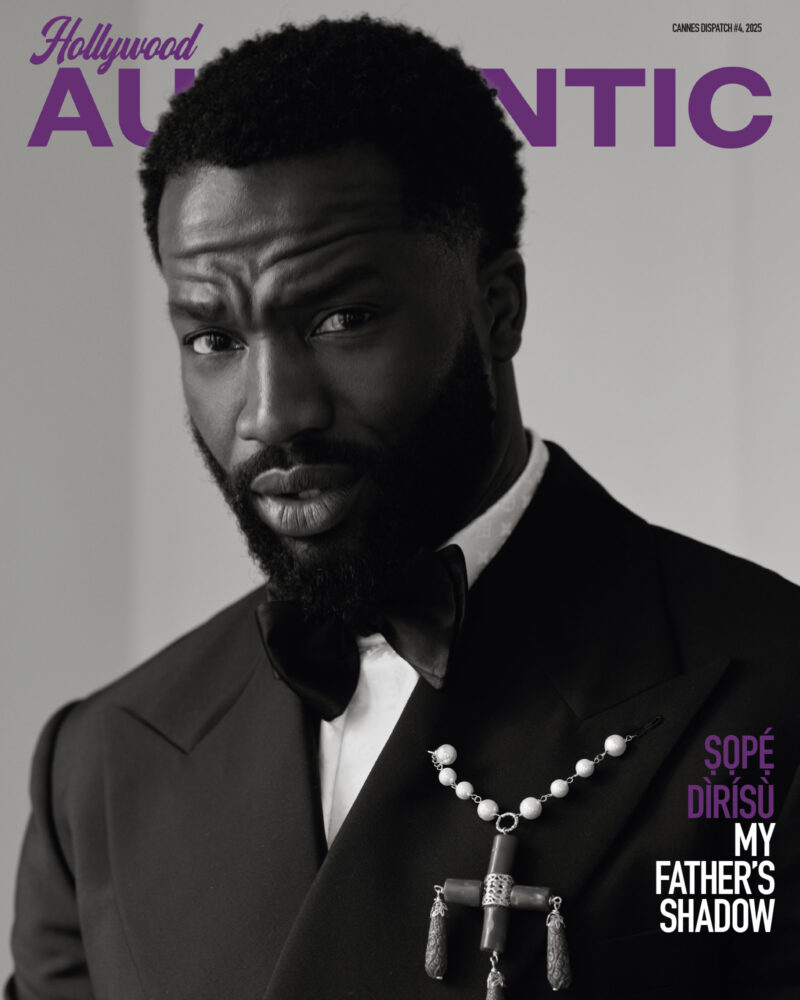
Photographs by GREG WILLIAMS
Interview by JANE CROWTHER
The Gangs Of London actor tells Hollywood Authentic about the special thrill of bringing the first Nigerian film to competition in Cannes and the emotion of filming My Father’s Shadow in Lagos.
Hollywood Authentic catches up with Ṣọpẹ́ Dìrísù at the Cannes Palais the day after his soulful and evocative ‘un certain regard’ film has premiered to rave reviews and celebrated with a party on the beach attended by Nigerian dignitaries. As we sit above the red carpet as Spike Lee’s latest film premieres below, Dìrísù smiles at the reaction to a project close to his heart as the child of Nigerian parents – and as exec producer on the film. ‘I think that people who have been to Lagos found there was a sensory experience to this film,’ he nods. ‘The redness of the earth… they said that they could smell and taste the food, you know? They could smell the cooking in the bukas, on the street corner. And they could feel the heat in the textures. It is a wonderful representation of the country.’
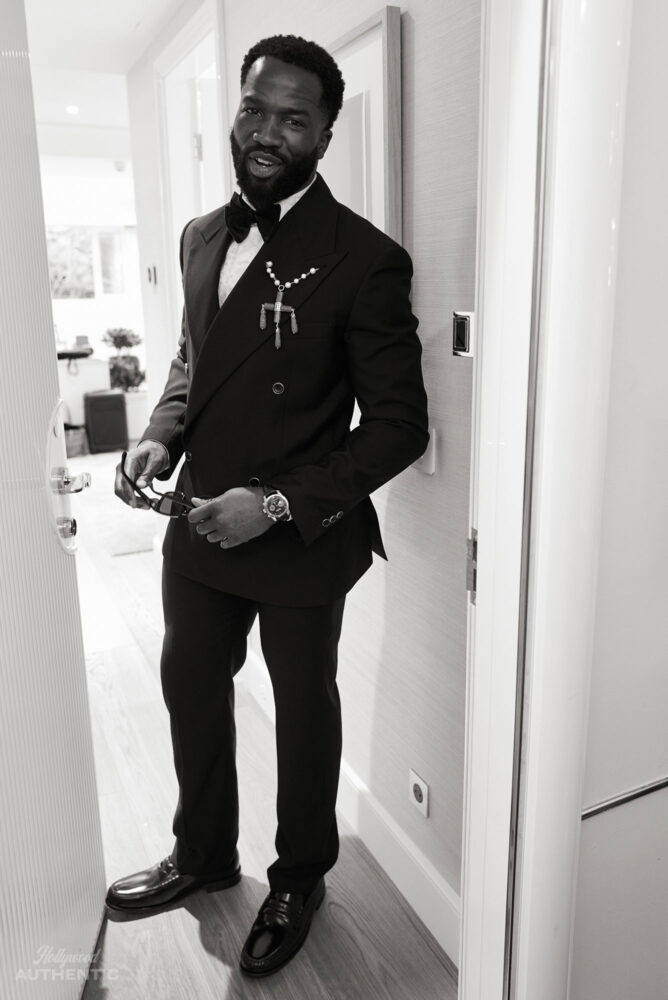
It certainly is. Akinola Davis Jr’s vivid, evocative film co-written with his brother Wale weaves through a vibrant Lagos in 1993, as a father (played by Dìrísù) shows his two pre-teen sons the teeming capital city during one eventful day as the election results that will change the country are announced. Filmed on location in Nigeria, Dìrísù found the experience very different from his trips to the country to visit family and friends. ‘I was delighted to be contributing to the history of Nigerian cinema and to be there on my own agency, personally. I’ve been back and forth from Nigeria a lot, but mainly for family reasons – weddings and birthdays and funerals, unfortunately. But I really felt great purpose being in the country, as opposed to being there on holiday. It made me feel like I was connecting with my community. And the big celebrations that have happened, not only in Nigeria but with Nigerians across the world, on the back of the success of this film have completely justified the way that I was feeling making it.’
Dìrísù plays the father to two real-life brothers, Godwin Chiemerie Egbo and Chibiuke Marvellous Egbo, and as the story unravels the relationship between parent and children becomes more nuanced. The connection between the trio had to feel authentic and the actor recalls the detail he and his director paid to ensuring it worked. ‘It was a really interesting task that Akinola and I worked a lot on, because I think the stereotype of a Nigerian father is very harsh, patriarchal and somewhat dictatorial. But the truth of a lot of fatherhood is that it’s not just that. There’s also great tenderness and love there as well. It was really important that we spent as much time together as possible. Because if we didn’t have that intimacy, which is captured so beautifully in the film, then I don’t think the film would work as well, you know? You want these boys to yearn for their father in the same way that Nigeria is yearning for great leadership. Wale talks a lot about a dream deferred and plans unfulfilled, and how that is thematically in parallel between the domestic familial story and the one of the country. The boys couldn’t swim and we wanted to capture this beautiful beach sequence. So I remember there were nights when we were at the hotel together, where I would take them swimming. I would try to teach them to swim, or give them familiarity in the water. To get to that point where their mother entrusted me to take the boys swimming, look after them, entertain them off set – I think it speaks to the relationship that we were able to foster in the course of the film.’
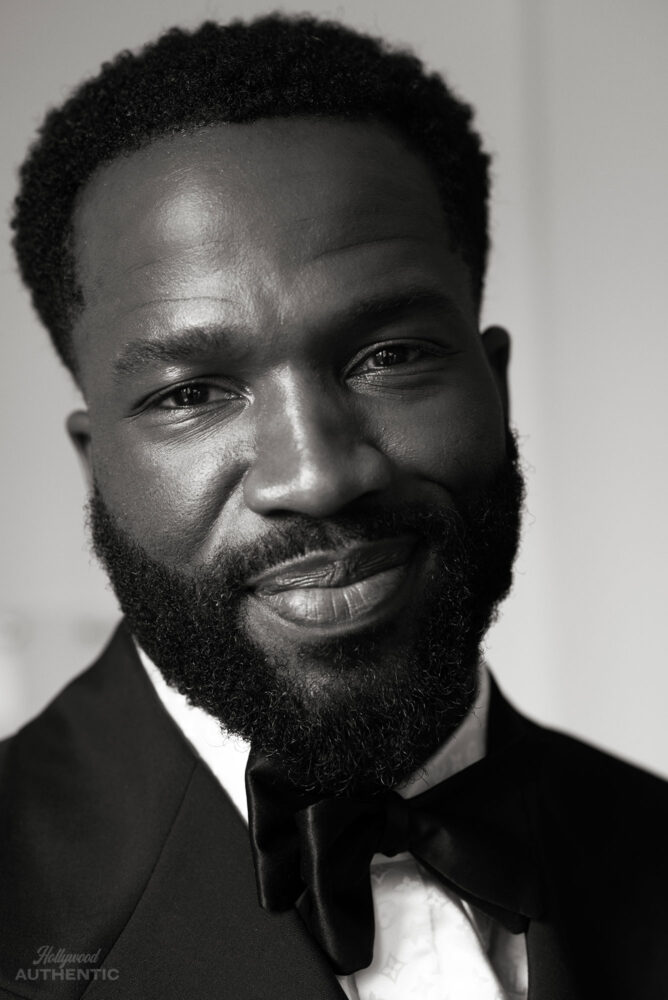
As we watch the red carpet below, Dìrísù explains the importance of My Father’s Shadow breaking barriers by being the first Nigerian film in competition at the festival. ‘It’s not only what it means for me, but what it means to Nigeria and the community, in the country and in the diaspora. There has been such a remarkable celebration of it. We didn’t get to see the carpet when people came to see the film yesterday – but I was told there was a wonderful expression of the joy and the pride that those who have been able to travel to Cannes have had for the film. That same joy and pride, and that expressiveness, I’ve felt on social media. I’ve felt it in conversations. I think a lot of people are excited that Nigerian cinema and Nollywood – which are definable as two different things but ultimately go film in hand – is being celebrated on a global scale. Nigeria has such a rich, deep history of filmmaking, and it’s kind of a shame that it’s taken so long for it to be on a platform like this. But I’m delighted that we’re able to break through that ceiling, and forge the connections and the global collaborations that are necessary for this to have happened.’
Backed by Irish Element Pictures, Nigerian Fatherland, the BFI, the BBC, Match Factory and Le Pacte, production on this film was, he says, ‘truly a global effort and I hope that there can be more collaborations like that in the future.’ And what does he think of possibly winning the big ‘Un Certain Regard’ prize at the end of this week? He chuckles and shrugs. ‘The experience here is a reward enough…’
My Father’s Shadow premiered at the 78th Cannes Film Festival
Read our My Father’s Shadow review here
Ṣọpẹ́ wears Louis Vuitton




